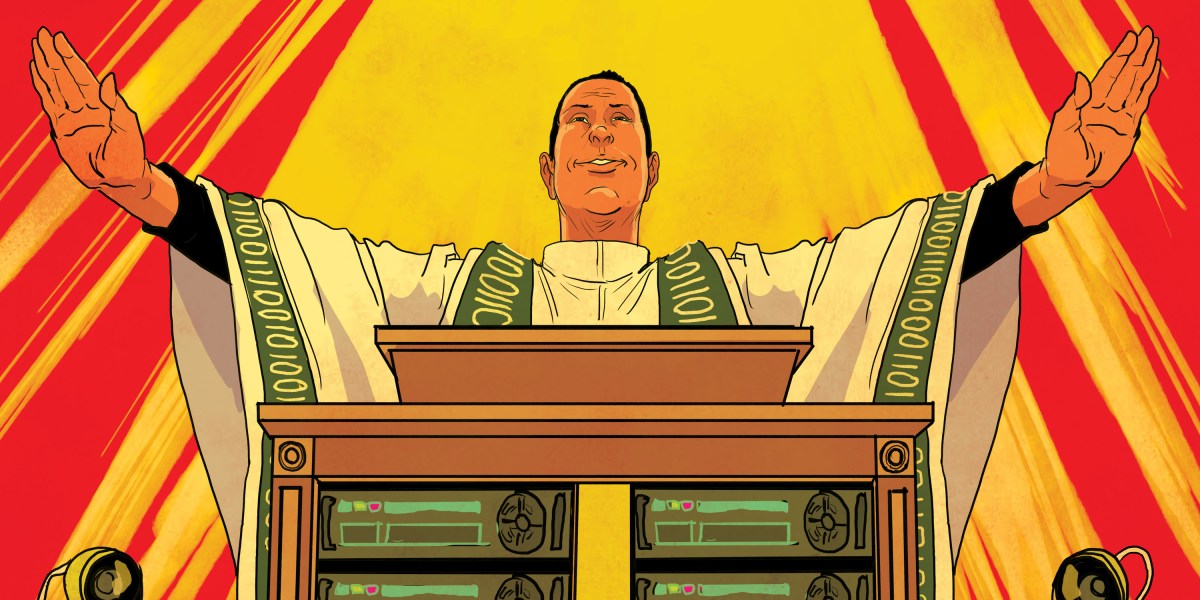These hypothetical scenes reflect real capacity, which are increasingly woven to worship at the national level, where spiritual care and supervision are closer to ways that few Congregans ever realize. Where the rationalist ethos and the evangelical spirituality of Big Tech, as soon as it was mixed like oil and holy water, this unlikely amalgam gave birth to an infrastructure that has already transformed the theology of trust – and redraw the constant of community and pastoral power in modern life.
Ecumenical technical ecosystem
The developing nerve center of this faith tech Nexus is in Boulder in Colorado, where it has spiritual data and analytical company Gloo.
Gloo Cattures combines thousands of data points that make up a much richer portrait than any image. Hence the company builds a digital infrastructure that was supposed to bring churches to the age of algorithmic insight.
The Church is “a highly fragmented market that is one of the big ones that is still fully accepted by digital technology,” she said to E -mail. “While churches have different goals to achieve their mission, they use Gloo to help them connect, engage and know their people on the depul.”
Gloo was founded in 2013 by Scott and Theresa Beck. Since the end of the 80’s to 2000, Scott has turned into a chain of 3,500 stores, took Boston on the market and founded Bagels Einstein Bros. Theresa, an artist, has built a reputation for cooperation, ecological workshops across Colorado and on. Together they redesigned pastoral care as a problem of analysts’ predictions and sold thousands of churches on the idea that spiritual health can be managed as a customer’s obligation.
Think about Gloo as something like Salesforce, but for churches: Platform for Analyst of Behavior, driven by church general knowledge, psychographic information and data about third -party consumers. The company prefers red as a “technological platform for the ecosystem of faith”. Either way, this information is integrated into the dashboard “Status of your church” – an interface for a modern pulpit. The result is a type of digital clairvoyant: a crystal ball that knew that it would want to check who to comfort and when to act.
Thousands of churches were sold from the idea that spiritual health can be managed as a customer’s obligation.
Gloo enjoys each of the digital breadcrumbs on the Congregation Letters-you are waiting for a church, how much money do you donate, which church groups you sign which keywords you use online requests for prayer-and then layers for third party data (census, consumer habits, even credit and health risks). Behind the behind the behind the score and segments of people and groups -the consistency, which is most at risk of driving, prepares for appeal to donation, or needs pastoral care. We, that it is tailored to the tailor-made customized via text, e-mail, gold chat in the application. All results flow into a single control panel that allows pastors to see trends, test messages, and give and wait. Basically, the system treats the spiritual committee as the marketing of the funnel.
It sells its launch in 2013 and Gloo is constantly increasing its trail and becoming a connective tissue for a frameable religious landscape in the country. According to the Hartford Institute for Religion Research, the US is home to approximately 370,000 different congations. Since the beginning of 2025, according to data provided by companies, Gloo has concluded contracts with more than 100,000 churches and mini leaders.
In 2024, the company secured a strategic investment of $ 110 million, supported by “Alnfined” investors with an Algna mission from a non -governmental organization for the development of children to a denomination financial group. This produced its development from the basic vendors of worship to the faith-tech of Juggernaut.
It began to creep and invest in the constellations of mini tools-whenever the automated distribution of sermons after giving in real time and washing the analysis, chatbots controlled and and library of management content. By creating these skills on the basic platform, the company creates a one-off shop for churches that back-off services with the applications of members of members and psychographic knowledge fully realize that the unified “ecosystem of faith”.

